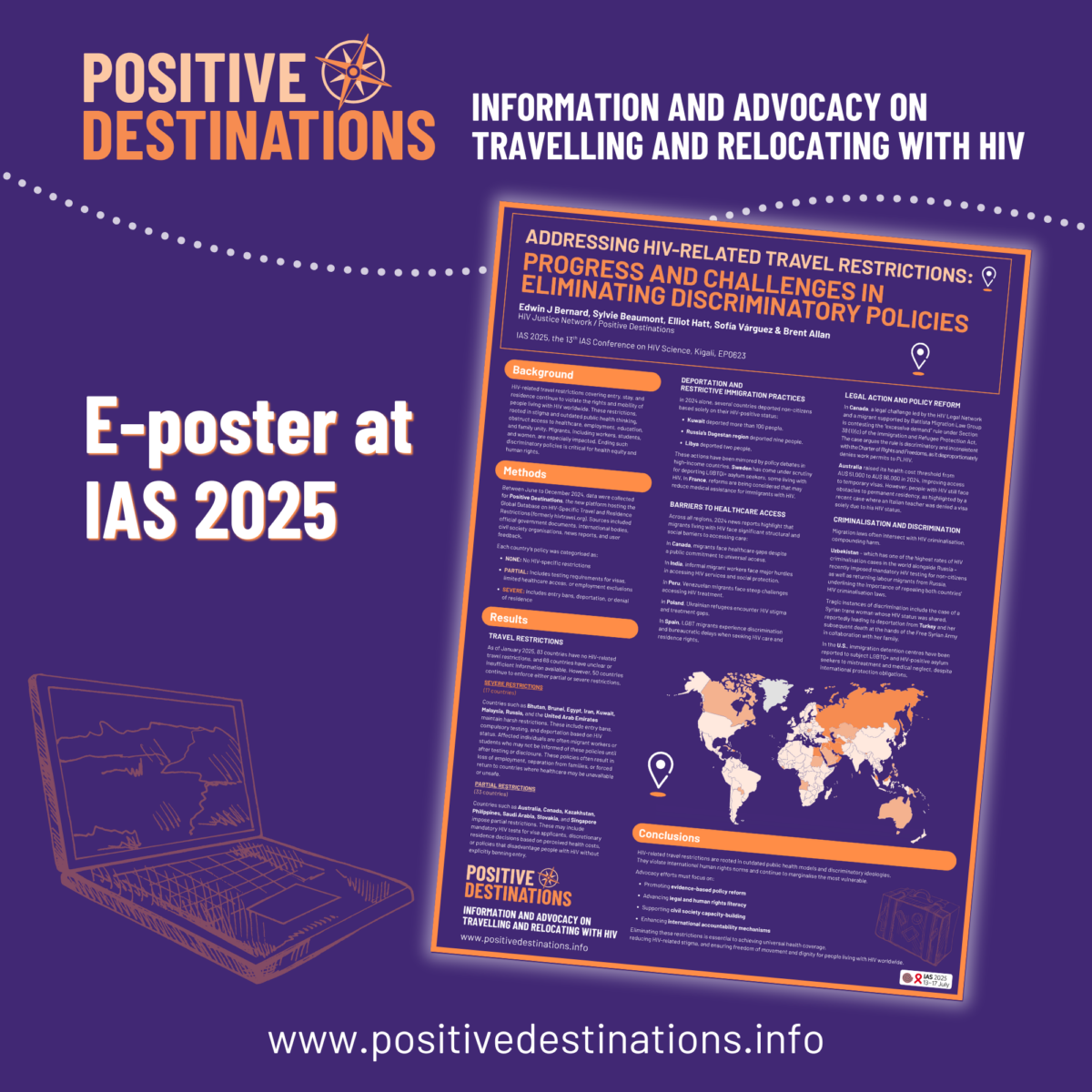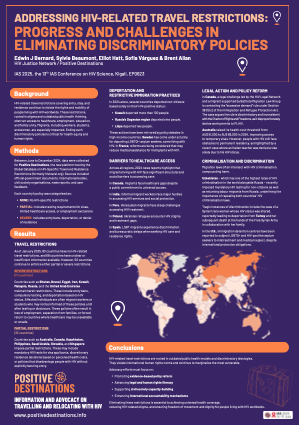
A new global study presented this week at the 13th IAS Conference on HIV Science in Kigali (IAS 2025) has revealed that 50 countries around the world continue to enforce HIV-related travel and residence restrictions, in clear violation of international human rights principles.
The data, shared by the HIV Justice Network through its new platform Positive Destinations, highlights the persistence of discriminatory laws and policies that prevent people living with HIV from freely travelling, working, studying, or settling in many parts of the world.
Despite progress – 83 countries now have no HIV-specific travel restrictions, and many others have adopted more inclusive approaches – 17 countries still impose severe measures such as outright entry bans, mandatory testing, and deportation. These include Bhutan, Brunei, Egypt, Iran, Kuwait, Malaysia, Russia, and the United Arab Emirates. Migrants and students are often disproportionately affected, with some unaware of the rules until after testing or disclosure, resulting in forced returns, loss of income, and separation from families.
Another 33 countries – including Australia, Canada, Kazakhstan, the Philippines, Saudi Arabia, and Singapore – have partial restrictions. These include requirements for HIV testing in visa applications, discretionary decisions based on perceived healthcare costs, and reduced access to essential services. Although these policies may appear neutral on the surface, they continue to disadvantage people living with HIV.
“These restrictions are rooted in outdated public health thinking and perpetuate stigma,” said Edwin J Bernard, HIV Justice Network’s Executive Director. “They obstruct access to healthcare, education, and family life, especially for migrants and refugees.”

In 2024, Positive Destinations documented several cases of deportation based solely on HIV status: Kuwait deported over 100 people, Russia’s Dagestan region deported nine, and Libya deported two. Such practices are increasingly being challenged by legal action. In Canada, for example, a court case led by the HIV Legal Network contests the “excessive demand” clause of immigration law, arguing it violates the country’s Charter of Rights and Freedoms.
However, policy reform has been uneven. Australia raised its health cost threshold for visa eligibility, slightly easing access to temporary stays, but permanent residency remains elusive for many people with HIV. A recent case saw an Italian teacher denied residency due solely to his HIV-positive status.
The study also underscores how HIV-related migration barriers often intersect with other forms of criminalisation and discrimination. In Uzbekistan and Russia, HIV criminalisation laws are paired with mandatory HIV testing for migrants. In the U.S., HIV-positive and LGBTQ+ asylum seekers continue to face mistreatment in detention centres. And in a tragic case in Turkey, a Syrian trans woman was reportedly deported after her HIV status was disclosed and later killed upon return.
The authors of the study call for urgent action: “Eliminating these harmful policies is essential to ending AIDS, achieving universal health coverage, and upholding the dignity and rights of people living with HIV everywhere,” said Bernard.
Positive Destinations, which hosts the updated Global Database on HIV-Specific Travel and Residence Restrictions, is available at www.positivedestinations.info
EP0623 Addressing HIV-related travel restrictions: Progress and challenges in eliminating discriminatory policies by Edwin J Bernard, Sylvie Beaumont, Elliot Hatt, and Sofía Várguez was presented at IAS2025 by Brent Allan at the 13th IAS Conference on HIV Science, Kigali, Rwanda.